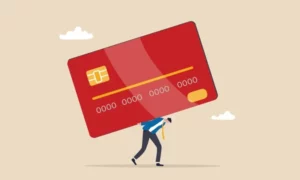Credit cards are a superb financial tool when used strategically. You can use them to earn rewards like cash back or miles for travel. Besides, they are an excellent source of emergency funds and can help lay the bedrock of credit building for future purchases, such as a car or home, which leads to an increase in the size of the Indian Credit Card Industry.
Long story short, there are many merits of using a credit card. However, things get challenging
when life throws an unforeseen monetary crisis your way. And, before you know it, you are
stuck with multiple credit cards and varying balances. Of course, sincerity and perseverance are
the two best measures to pay off your credit card debts speedily and efficiently, but strategies
like debt consolidation can help. Interested to know more? Read ahead!
What is Credit Card Debt Consolidation?
Simply put, credit card debt consolidation can be defined as the process of amalgamating all
your outstanding credit card debt into one payment. Debt consolidation makes tracking
multiple credit bills easier as there is one single lump sum payment per month and one due
date. Moreover, debt consolidation can also help you pay less in interest on your total overall
debt. Thus, if you are dealing with a manageable amount of debt, credit card debt from
scattered sources are looking to simplify them to pay off your loans faster, then debt
consolidation is an approach worth considering. Gathering debt information, analyzing debt
consolidation loan possibilities, and taking action are the basics of debt consolidation.
What Type of Debt Consolidations Are There?
There are various types of debt consolidations. The most common ones include –
Credit Card Balance Transfers
As the name suggests, credit card balance transfers are best suited for credit card debt. It
enables you to transfer the balances of the high-interested debt linked with your credit cards to
a new card, ideally with a lower interest rate. Thus, the culmination is lower monthly payment
and a faster pay-off period. There are multiple financial institutions that offer balance transfer
credit cards with a launch offer of zero percent APR for a stipulated time period. Thus, with the
help of credit card balance transfers, you can focus on better repaying all your debt on just one
and thereby save money on interest payments.
Debt Consolidation Loan
In a layperson’s language, debt consolidation loan is a financial relief that combines multiple
individual debts into one larger loan and debt reduction plan that specifically targets credit card
debts, medical bills, etc. These loans simplify the repayment period and so you do not have to
make multiple payments each month.
Home Equity Loans
A home equity loan is a secured loan that leverages your home as a collateral. There are two
main types of home equity loans. The first is the usual variant wherein you get a lump sum
money and can spend it the way you like, which in this situation is all about repaying your credit
card debt. The second type of home equity loan is home equity line of credit wherein the
lender approves a specific amount of money and you can take from it as you like. During
repayment, you only have to return the amount you have taken out.
Home equity loans have a lower interest rate but you might not qualify for them if you have a
bad credit. Moreover, in case of a default, the creditor may foreclose on your home to recoup
its costs. So, it is imperative to be 100 percent sure that you can make the repayments before
going down the road.
When Should You Decide to Consolidate Debt?
The best situations to consolidate credit card debt are –
- You have a plan or budget in place to prevent further loans
- You credit score is good enough to get a 0 percent credit card transfer
- You have enough income to make repayments
- Your total debt, excluding mortgage does not exceed 40 percent of your gross income
- Your total debt is small
- You have multiple high interest debts that can benefit from consolidation



































